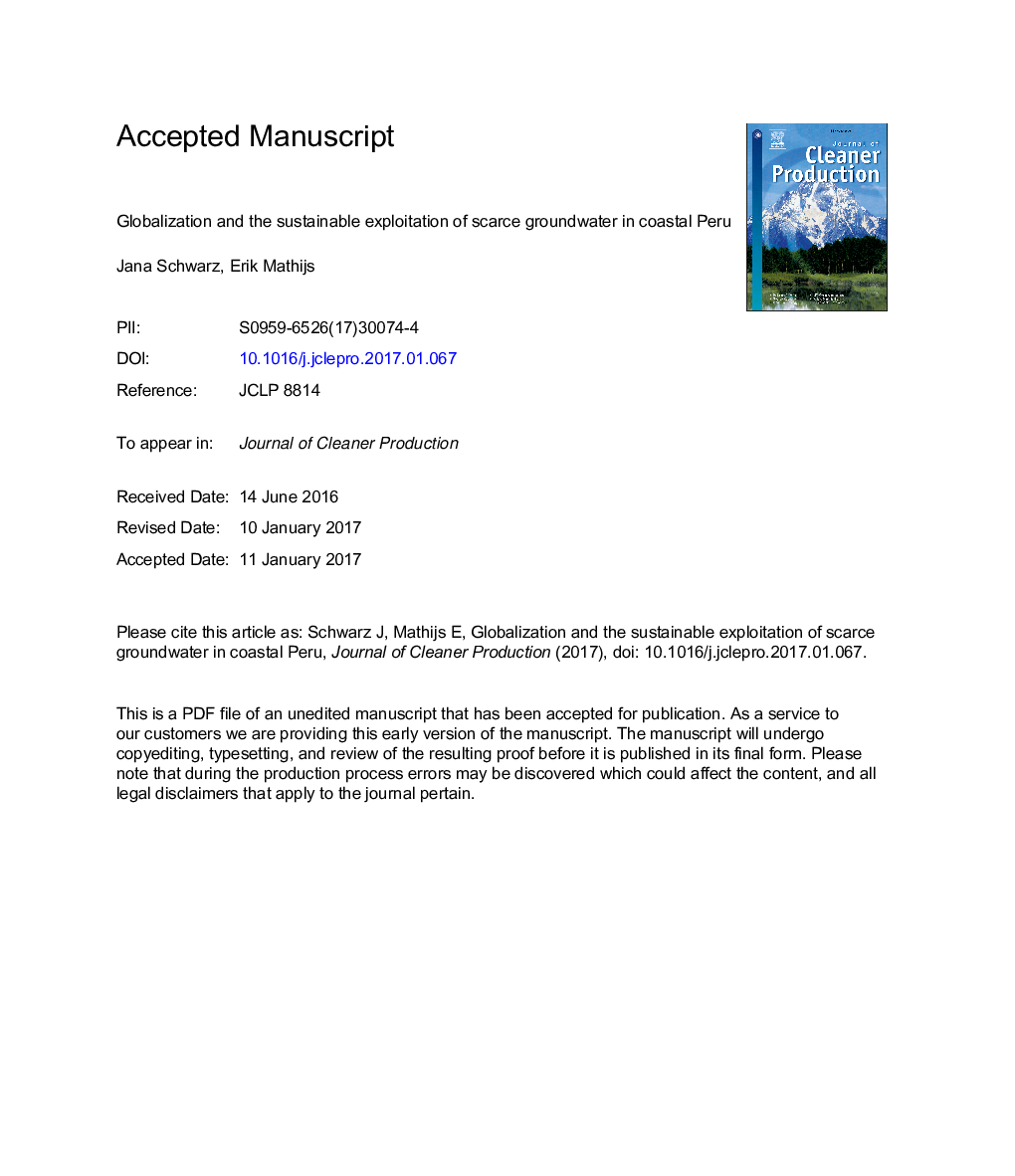| Article ID | Journal | Published Year | Pages | File Type |
|---|---|---|---|---|
| 5481474 | Journal of Cleaner Production | 2017 | 28 Pages |
Abstract
Trade in agricultural and food products has increased sharply since the 1980s, but links and trade-offs between socio-economic benefits and environmental impacts of this trend have hardly been studied. The empirical analysis of this article focuses on the Ica province in Peru, where agricultural export production has led to huge economic growth and employment generation at the expense of unsustainable aquifer depletion. Building on the concept of ecosystem and societal metabolism (MuSIASEM), a model of the province including groundwater use, added value generation and employment creation is built. Absolute and relative differences between crop production for auto-consumption and national markets, and for export markets are assessed at different societal levels. Moreover, the impact of two land use scenarios aiming to reduce total groundwater extraction is explored. The analysis draws a picture of a system which is highly dependent on the use of natural resources. Export agriculture generates considerably more value added and employment while extracting more than five times more water from the aquifer than local crop production. The scenarios show that although being more efficient regarding intensive indicators, a reduction of groundwater use for export activities is indispensable to sustain environmentally sustainable agricultural production in the long run. Several policy measures aiming at mitigating groundwater depletion are discussed.
Related Topics
Physical Sciences and Engineering
Energy
Renewable Energy, Sustainability and the Environment
Authors
Jana Schwarz, Erik Mathijs,
